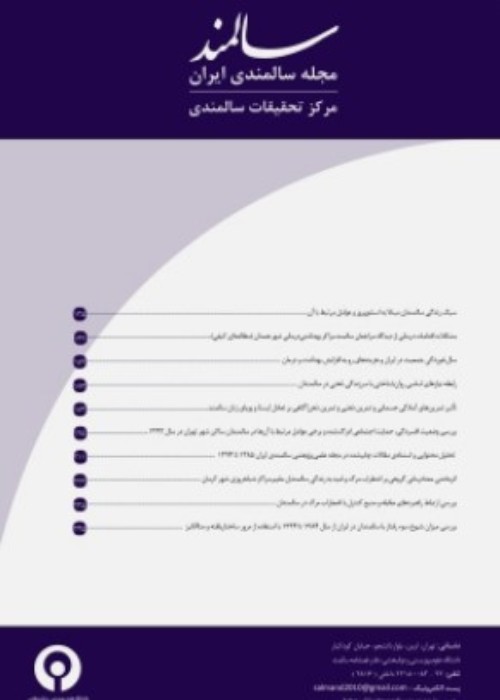Investigating the Effect of Self-care on the Nutritional Status of the Elderly by Structural Equation Modeling Analysis
The importance of self-care ability in the elderly to improve their physical and mental health has led to the most direct intervention in this regard to be the assessment of the status of self-care ability and its relationship with nutritional status. This study aims to determine the impact of self-care ability on the nutritional status of the elderly in Tehran City, Iran in 2019.
In this descriptive-analytical correlation study, 420 elderly people referred to the health centers of Shahid Beheshti University of Medical Sciences were studied by two-stage cluster sampling. The data collection tool in this study was a three-part questionnaire, including demographic information, a self-care ability scale for the elderly (SASE), including 40 questions, and a mini nutritional assessment (MNA), including 18 items. The inclusion criteria included a willingness to participate in the study, age 60 years and older, literacy, ability to communicate and collaborate in the study, no cognitive impairment, and the exclusion criteria included incomplete completion of the questionnaire. Data were analyzed by SPSS software version 16 using descriptive and inferential statistical tests of Spearman correlation and structural equation model via using model fit indices under EQS6/1 software.
Among the elderly people, 65.7% were at the desired level in terms of self-care ability and 34.3% were at the middle level. In terms of nutrition, 65% of the elderly people were normal, and 26.4% were exposed to malnutrition. The highest mean and SD of nutritional status and self-care status were obtained in the elderly between the ages of 70-74 and 65-69 years (21.47±3.98) (87.51±6.64). The results obtained from structural equations showed that self-care with an intensity of 71% affected the nutritional status of elderly people. The indices obtained in the model RMR and RMSEA showed less than 0.08 and other fitting indices showed 0.90 and higher.
According to the findings, considering the appropriate level of self-care ability and nutritional status of the elderly and the impact of its socio-individual factors on self-care status, purposeful planning to improve quality of life, especially nutritional quality, and self-care, is essential.
- حق عضویت دریافتی صرف حمایت از نشریات عضو و نگهداری، تکمیل و توسعه مگیران میشود.
- پرداخت حق اشتراک و دانلود مقالات اجازه بازنشر آن در سایر رسانههای چاپی و دیجیتال را به کاربر نمیدهد.


